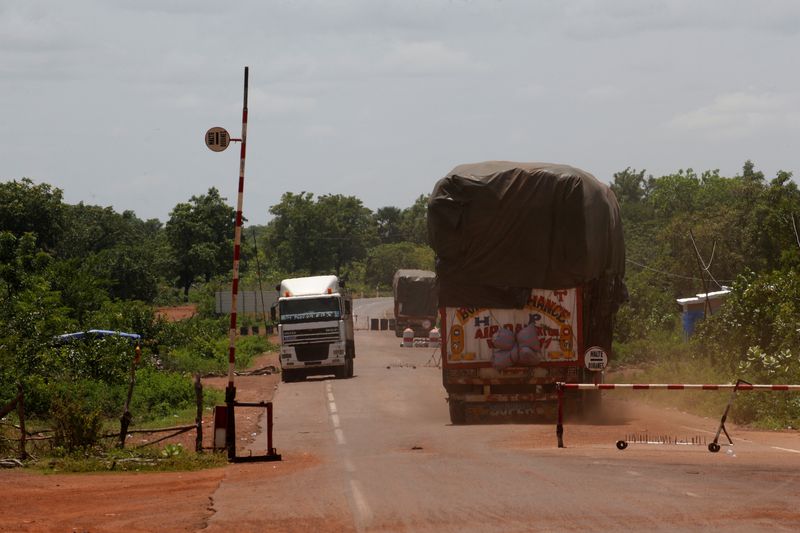Mali’s cotton trucks race to the border after sanctions ease
2022.07.11 17:07

Budrigannews.com – After months stuck at home unable to provide for his family, Malian truck driver Ibrahima Sangare is delighted to be back on the road after the lifting of regional economic sanctions let him resume long-distance drives to ports in Ivory Coast.
Sangare was waiting with a dozen fellow cotton truckers to be processed by customs at a dusty border crossing last Wednesday – among the first to cross into Ivory Coast there since the Economic Community of West African States (ECOWAS) announced on July 3 that borders with landlocked Mali could reopen.
“It’s a joy, we’re back to working as usual,” Sangare said, sitting in the shade of a tree at the Tengrela border point in northern Ivory Coast.
The border closures were among the painful sanctions imposed by the bloc in January after Mali’s military-led interim government said it planned to extend its rule and delay democratic elections after a coup in 2020.
“It was difficult. The road was blocked, there was no work,” Sangare recalled.
Free of sanctions, Mali can restart exports of cotton and gold, major economic drivers in one of the world’s poorest economies. It has also pledged to honour some $300 million of missed debt repayments caused by being cut off from the regional financial markets and regional central bank.
‘FIRST COTTON TRUCKS’
The day after ECOWAS’s announcement, Sangare and the other drivers filled their trucks with cotton bales and started the 800 km (500 mile) journey from the Malian city of Bougouni to the port of San Pedro in southern Ivory Coast.
“We are the first cotton trucks to cross here,” driver Siaka Traore said with pride.
As of this week, the Ivorian Shippers Office (OIC), which oversees the cross-border transport of goods, expects 150-200 trucks carrying cotton from Mali to reach the ports of San Pedro and Abidjan per week, OIC regional manager Jacques Kouadio told Reuters.
The revenue from resumed exports will be a welcome boost for the Malian economy, which will see growth fall to 2.1% in 2022 from 3.2% in 2021 due to the impact of sanctions and fall-out from the war in Ukraine, according to an African Development Bank forecast.
Like elsewhere, Mali has seen a sharp rise in the price of fuel and basic goods, while the government also faces steep security costs from a decade-old Islamist insurgency that has taken over swathes of the north and centre, killing thousands.
ECOWAS lifted the sanctions after Mali’s military rulers proposed a 24-month transition to democracy and published a new electoral law, but it kept individual sanctions on members of the ruling junta and the transitional council.








